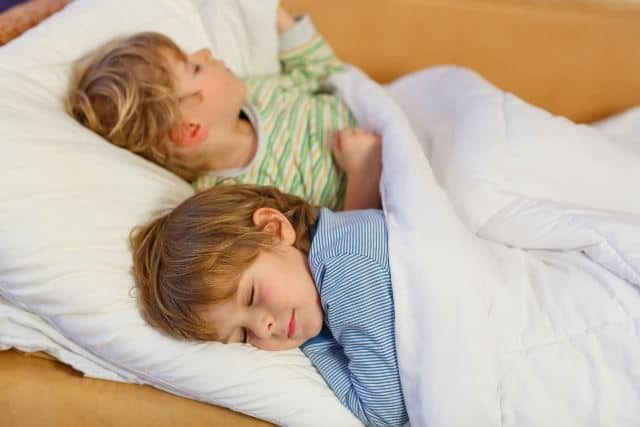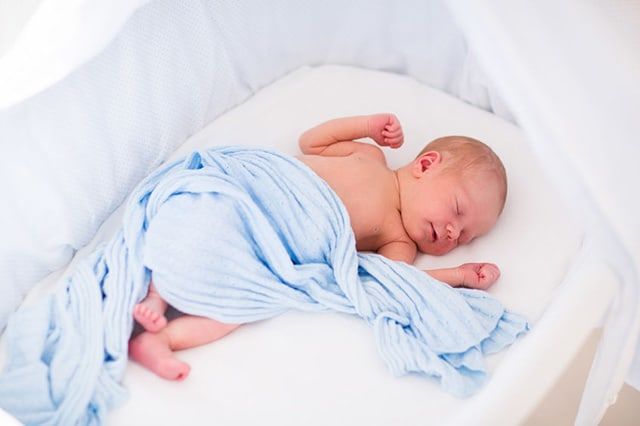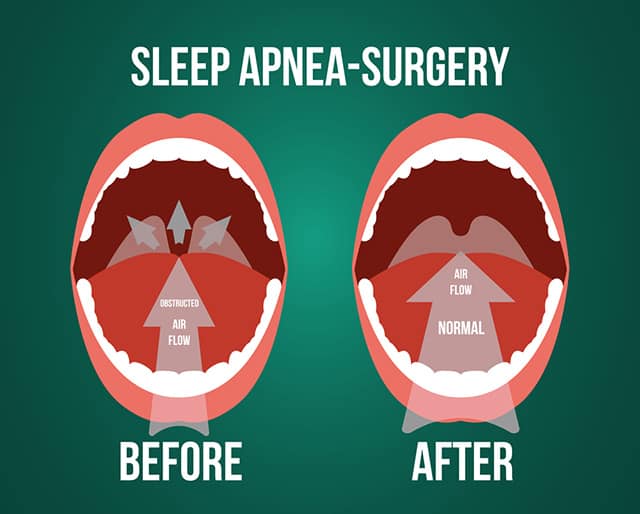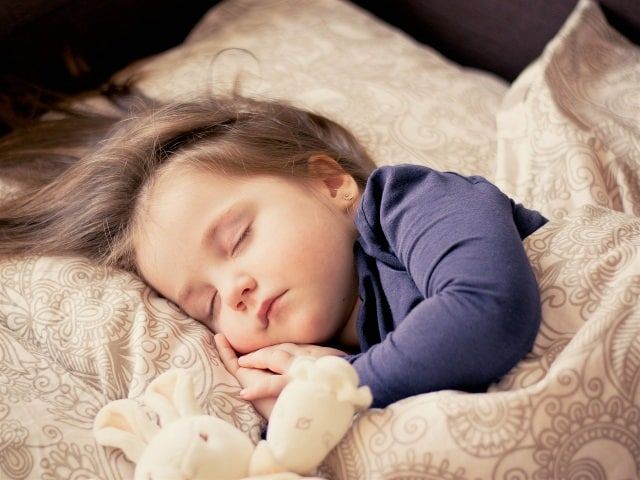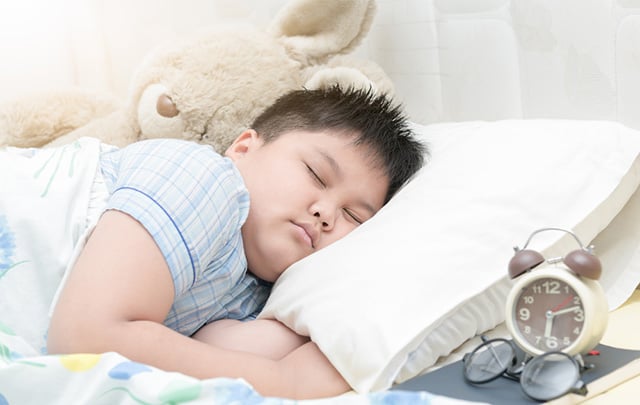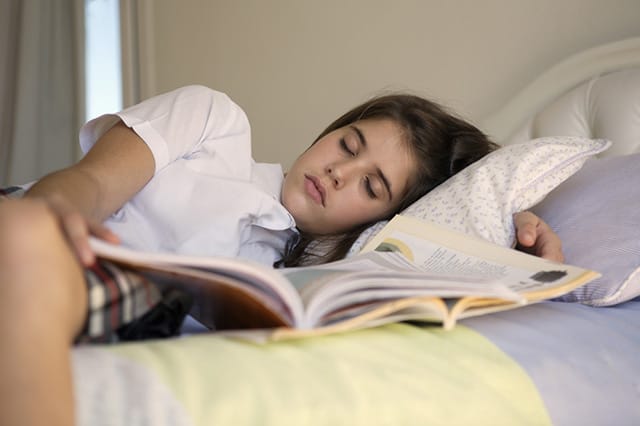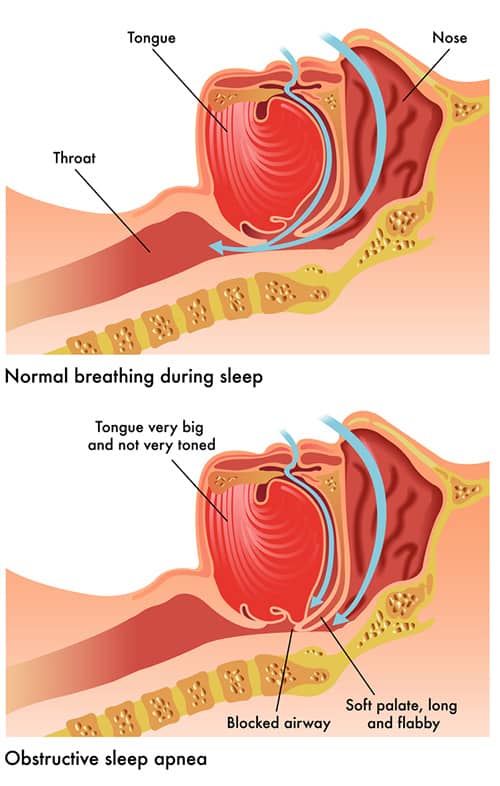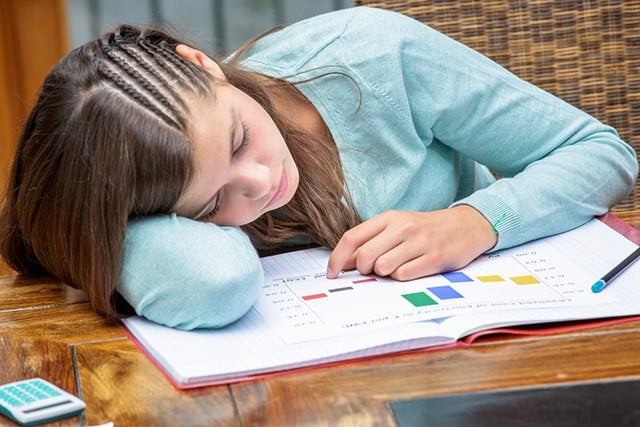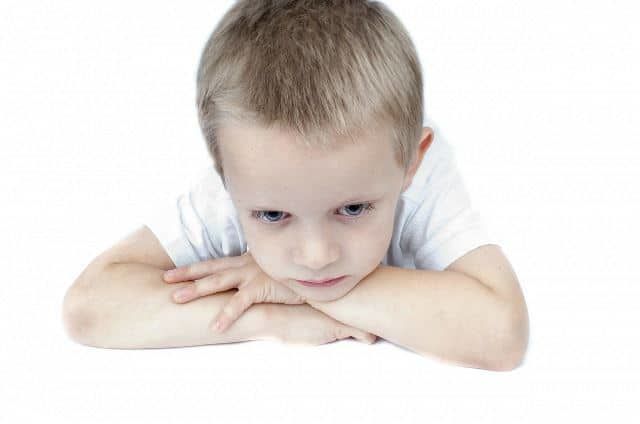One of the most discussed aspects of childcare is sleep or the lack of it I should say. Currently, I fight for my side of the bed with my 3 year old. For some reason, he just won’t stay in his own bed throughout the night. Why is this? Does your child do the same thing? The quantity of sleep that a child needs vary by age groups. There’s really no magic number, but not getting enough of it can really have an impact on a child. Here’s a handy list that tells us how many hours of sleep children needs:
0-2 months should be getting 10.5-18 hours of sleep
2-12 months should be getting 14-15 hours of sleep
1-3 years should be getting 12-14 hours of sleep
3-5 years should be getting 11-13 hours of sleep
5-12 years should be getting 10-11 hours of sleep
Will your child sleep for this long? Probably not, but it’s wishful thinking, right? However, if your child is having difficulties sleeping throughout the night, there could be an underlying cause. Here is what we found out about the relationship between children and sleep.
Sleep and Newborns
Children from 0-3 months of age generally sleep from 10.5-18 hours per day with an irregular sleep-wake cycle and 1-3 hours of being awake. This cycle interacts with their need to be changed, fed, and nurtured. However, their sleep period may last only a few minutes to a few hours. When a baby is sleepy, they will let you know by fussing, crying, or rubbing their eyes. When you see this, it’s time to put them to bed. If you find that your newborn is sleeping more during the day than at night, you can encourage them to be awake more by exposing them to light and noises or by playing with them. Unfortunately, if your baby just won’t sleep, there could be a bigger issue at hand. One of the most common parasomnias that a baby can suffer from is infant sleep apnea.
Infant Sleep Apnea
When a baby has sleep apnea, their breathing pauses. When there is a partial reduction in their breathing, it’s called a hypopnea. Complete pauses in breathing are called apnea. This happens during the REM stage during infancy. The apneas that an infant can have are obstructive, central, or mixed. These breathing problems have the ability to cause severe complications, such as a lack of oxygen in the blood, known as hypoxemia. They could also develop a slower heartbeat, known as bradycardia. In more severe cases, the baby could lose consciousness, and they will then need to be resuscitated.
Tips For Newborn Sleeping
If you find that your baby has no underlying cause of their terrible sleep, you can try the following methods:
Identify their signs of sleepiness by observing their patterns
Put them in their crib when they are sleepy rather than already sleeping
Do not place blankets close to their heads and place them in their cribs on their back
Try to encourage more nighttime sleep
Sleep & Older Infants
Babies from 4-11 months of age are usually sleeping from 9-12 hours per night and may take a 30-minute to two-hour naps throughout the day. When they are put to bed drowsy rather than already sleeping, they are more likely to self-soothe, which allows them to fall asleep on their own without assistance from a parent or guardian. Those who have learned to be dependent on parental assistance give signals that tell the parents they need help falling asleep. When it comes to sleep issues, social and developmental issues can cause it. Infants who feel the need to use their parents as a security blanket will have an issue falling asleep without their assistance. During the second half of the year, around six months of age, a child may feel some separation anxiety. Illnesses and increased development of their motor skills may also disrupt their sleep.
Tips For Infant Sleeping
Most of the sleep issues that this age bracket goes through are from the trained signals. However, there are some methods that you could try for your child to fall asleep on their own:
Ensure that they have a steady daytime and bedtime schedule
Create a bedtime routine that they will enjoy
Give them a friendly sleep environment
Encourage independent sleep
Sleep and Toddlers
When it comes to toddlers, 11-14 hours is the recommended amount of sleep that they should get. When they turn 18-months old, their nap times will most likely decrease to once per day lasting between one and three hours. There are many issues that can lead to sleep issues, which could be their drive for independence, increased cognitive, social, and motor abilities, and separation anxiety. However, there is one issue that hits kids around 3-5 years old, and it’s something that I’ve personally gone through with my first son.
Night Terrors
Pavor Nocturnus, also known as night terrors, happen approximately 90-minutes into their sleep stage at 3 or 4 Non-REM sleep. In my experience, I noticed my child sitting up in his bed and screaming for no apparent reason. No matter how much I tried to wake him, he just wouldn’t. He would be inconsolable for quite a while, but it can last around 30-minutes for most kids.
He would then go right back to sleep as if nothing happened. During this stage, other kids can experience tachypnea or tachycardia. Night terrors are most common in kids from 3-8 years old. It’s important to remember that these are significantly different from nightmares.
School-aged Children
During this period, children should be getting 9-11 hours of sleep. However, during this time, there is more for them to be distracted by, which is why not getting enough sleep is more of a common thing for this age bracket. Children are becoming more interested in school, sports, television, and whatever electronic device they may have to keep them awake. It’s also at this time that children are more likely to suffer from sleep disruptions. It can be hard to tell exactly why your child isn’t sleeping well, which is why it’s important to look for the problem signs that may signify an actual sleep disorder:
Your child may have a different mood or behavior pattern
They are constantly tossing and turning in their sleep
They are hurting the relationship between the parents and them
They wake up too much during sleep
You might want to check: The Best Bedtime Stories for Kids
Significant Sleep Disorders In Children
Sleep deprivation can have many side effects, which includes issues in school, at home, and in personal relationships. Sleep deprivation can also lead to behavioral problems, memory loss, poor concentration, overeating, slower reaction times, accidents, and injuries from lack of coordination and focus. It’s important to recognize the signs of sleep issues, which can help determine whether or not they have a sleep disorder.
Sleepwalking
Sleepwalking is a disorder that results in the child walking around or performing other behaviors while they are asleep. It is more common in children than it is on adults and more likely to occur if the child is already sleep deprived.Children may be very difficult to wake up when they are sleepwalking and will most likely not remember what they did while they are in this state.
Children who suffer from this may also sit up in their bed, walking around the house, and even leaving the house. If you have ever been told to not wake a sleepwalker, this is false. It is actually more dangerous to not wake one than to wake one up. However, it should be done with caution because they can become startled and may become violent.
Narcolepsy
Narcolepsy is a condition that causes excessive sleepiness that can impact everything in a child’s life, including but not limited to academic and social functioning. The cause of narcolepsy is unknown, but it’s thought to be a disruption in the brain area that controls sleep and wakefulness. It’s also thought to be a loss of a chemical in the brain called hypocretin or orexin. There is no specific gender that it effects, and it’s not reported until the age of 15 usually. Unfortunately, there is no cure for narcolepsy, but there are treatments that can help manage the symptoms so that the child can lead a normal life. There are also prescription medications that can be used to treat the excessive daytime sleepiness.
Obstructive Sleep Apnea
One of the most common symptoms when it comes to obstructive sleep apnea (OSA) is loud snoring. The snoring may then be interrupted by a blockage of breathing with gasping and snorting noises that come from the awakening sleep. When a child doesn’t get good enough sleep due to the condition, they can become irritable, may become sleepy throughout the day, or have a tough time concentrating in school. One of the common physical causes of the narrowed airway is from enlarged tonsils and adenoids. Overweight children are also at an increased risk for OSA. Children who also have lower jaw or tongue abnormalities are at a higher risk for developing altered breathing.
Insomnia
Insomnia can be described as having difficulties going to sleep or staying asleep, but in children, it can often be called behavioral insomnia and is most commonly caused by poor sleep hygiene. It’s not usually a problem unless it starts to cause daytime functioning impairment. Right now, there are three different types of insomnia:
Acute Insomnia: This happens only briefly due to certain life circumstances such as stress or a getting bad news. This usually happens when somebody is stressed at work or has recently lost a loved one. Usually, this kind of insomnia will solve itself without any intervention.
Transient Insomnia: Transient insomnia is short-lived. It can last only three nights and then resolve itself. The lack of sleep can be caused by noises, stress, medications, or changes in temperatures. Jet lag can also cause this disorder.
Chronic Insomnia: If your child falls into this category, they have experienced three or more nights of disrupted sleep and has lasted at least three months. They could be going through this due to a change in environment, medications, sleep habits, or other psychiatric disorders.
Anxiety is one major cause of insomnia. When children are anxious about something, such as school or a relationship, they can lose sleep thinking about it. They may feel overstimulated, overwhelmed, or stuck in thought about something from their past.
Medical and psychiatric disorders can also cause insomnia in kids. Those who may suffer from uncontrolled nighttime asthma, allergies, itchy skin, or a stuffy nose can get in the way of their sleep as well. These conditions can be persistent and may be easily ignored until they get worse or flare up. There are also a few neurodevelopmental disorders that can cause insomnia such as Asperger’s, bipolar disorder, autism, and mental retardation. Environmental factors can be a simple cause of this issue. Noise, cold, heat, and the light conditions in the room can have an interference with sleep. If this is the case, you should make sure that their bedroom is free from noises, disruptive lights, and should be at a comfortable temperature for them to sleep in.
Children who are suffering from insomnia may have one or more of the following symptoms:
Difficulty falling or staying asleep
Tension
Daytime sleepiness
Depression
Hyperactivity
Lack of attention
Aggression
Memory issues
Disciplinary issues
Mood swings
Depression
ADHD
A recent study showed that children who have ADHD had higher rates of daytime sleepiness than those without ADHD. It was also shown that 50% of children who suffer from ADHD also has signs of breathing disorders while they sleep, compared to 22% of children without it. It’s also been shown that kids with ADHD suffer more from restless leg syndrome than those without it. There’s also a link between poor sleep and ADHD symptoms. Another study showed that treating the sleep issues may have been enough to treat the ADHD as well. A study that consisted of 2,463 children from the ages of 6-15, those with sleep problems were more likely to be impulsive, hyperactive, and display oppositional behaviors.
You may want to read: Everything You Need to Know About Sleep in Kids
Conclusion
The requirements of sleep for your child versus what they actually get probably aren’t going to line up. There are several factors, as mentioned above, that can cause them to not be able to sleep well, leading them to mood disorders and other issues directly related to a lack of sleep. It all comes down to the consistency of their circadian rhythms. If this is out of whack, then their whole system is going to be as well. It’s important to understand the signs and symptoms of a sleep disorder before it becomes too much of an issue for you and your child.
